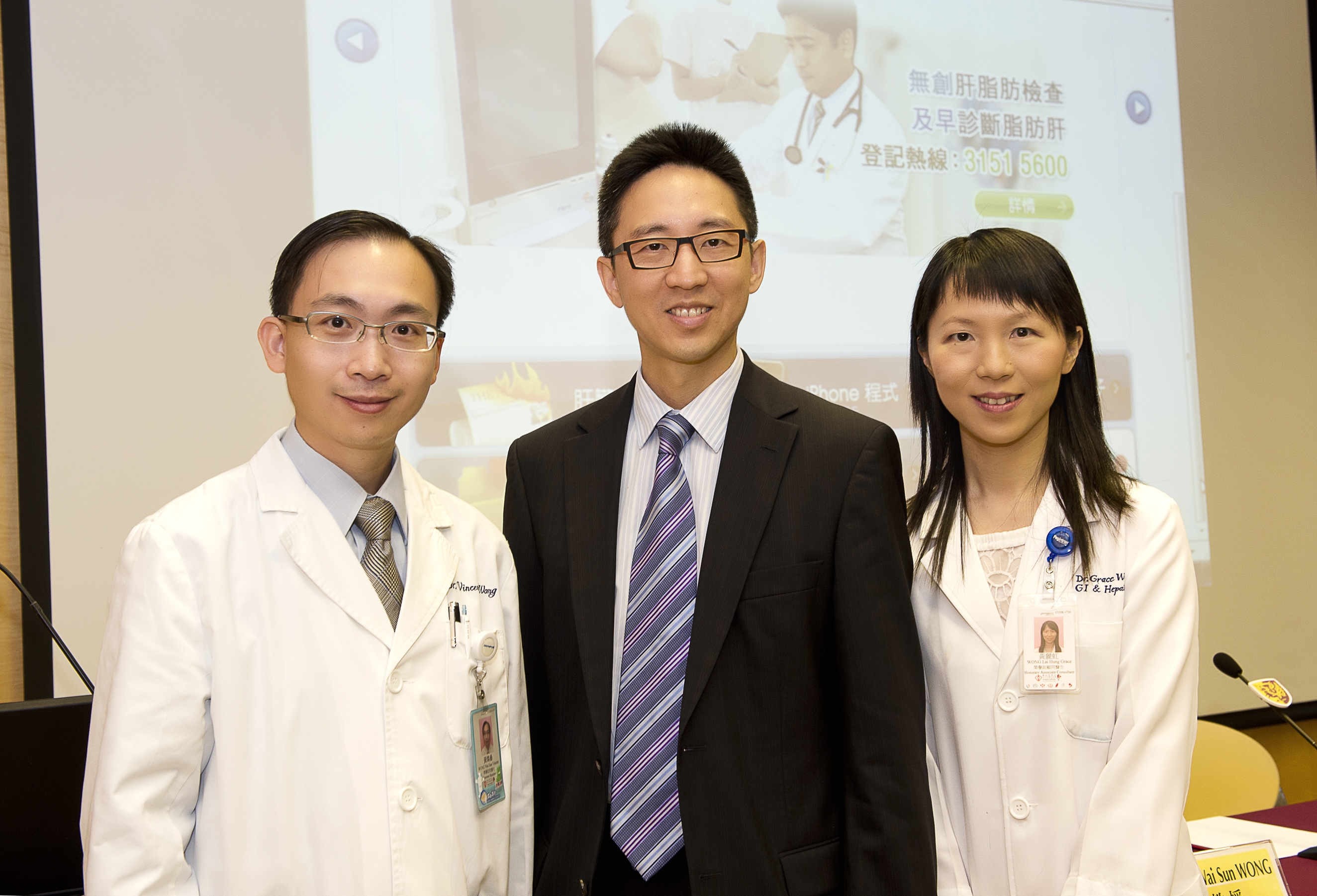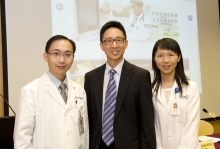CUHK
News Centre
CUHK-HCC Score Accurately Predicts Risk of Liver Cancer in Chronic Hepatitis B Patients Receiving Antiviral Therapy
Chronic hepatitis B virus (HBV) infection is the most common cause of liver cirrhosis and hepatocellular carcinoma (HCC), affecting 8% of the adult population in Hong Kong. In 2010, The Chinese University of Hong Kong (CUHK) introduced the CUHK-HCC score, a simple index developed primarily for family doctors to assess the cancer risk of patients with chronic hepatitis B based on their age, albumin, bilirubin, viral load and cirrhosis. The score classifies patients into high or low HCC risk group, and predicted their risk of developing HCC in the coming 5 years without taking antiviral therapy. Its performance among patients undergoing antiviral therapy remained untested. A longitudinal study recently conducted by Prof. Henry Lik Yuen CHAN, Director, Center for Liver Health, CUHK, and his team has further supported the use of CUHK-HCC score as an effective cancer risk predictor for patients with chronic hepatitis B receiving antiviral therapy, which will have great implication on clinical management and patient education.
According to the latest international guidelines, patients with active hepatitis (high liver enzymes and viral load) or liver cirrhosis should receive antiviral therapy because they are at risk of disease progression and complications. Antiviral drugs are reimbursable from the Hospital Authority Drug Formulary. However, according to a recent report by CUHK, 4.3% of the treated patients would further develop HCC in 5 years even after receiving antiviral treatment and the development was unpredictable.
During 2005-2012, Professor Chan and his team conducted a longitudinal study to evaluate the CUHK-HCC scores of 1,531 entecavir-treated patients with either active hepatitis or liver cirrhosis. Based on the CUHK-HCC scores, 47% (713) and 53% (818) of the patients were classified as low and high risk group respectively. In 5 years, only 0.4% of the patients in the low risk group developed HCC, compared to 8.1% in the high risk group. This indicates that patients in the low risk group essentially have their cancer risk eliminated with antiviral therapy while patients in the high risk group are still at risk of HCC after receiving antiviral therapy. It also reaffirms the effectiveness of using CUHK-HCC score in predicting cancer risk of patients.
CUHK’s research team recommends that patients in the high risk category should keep an eye on their CUHK-HCC score and perform regular cancer screening even they are already on antiviral medication, while patients with low cancer risk should be monitored with the prediction score once a year. The CUHK-HCC score will help directing resources of cancer screening toward high risk patients and substantially minimizing the waiting time for ultrasound cancer screening by approximately 50%.
For simple assessment of HCC risk factors, please visit the website of CUHK’s Center for Liver Health at: http://www.livercenter.com.hk/chi/p15.asp.





